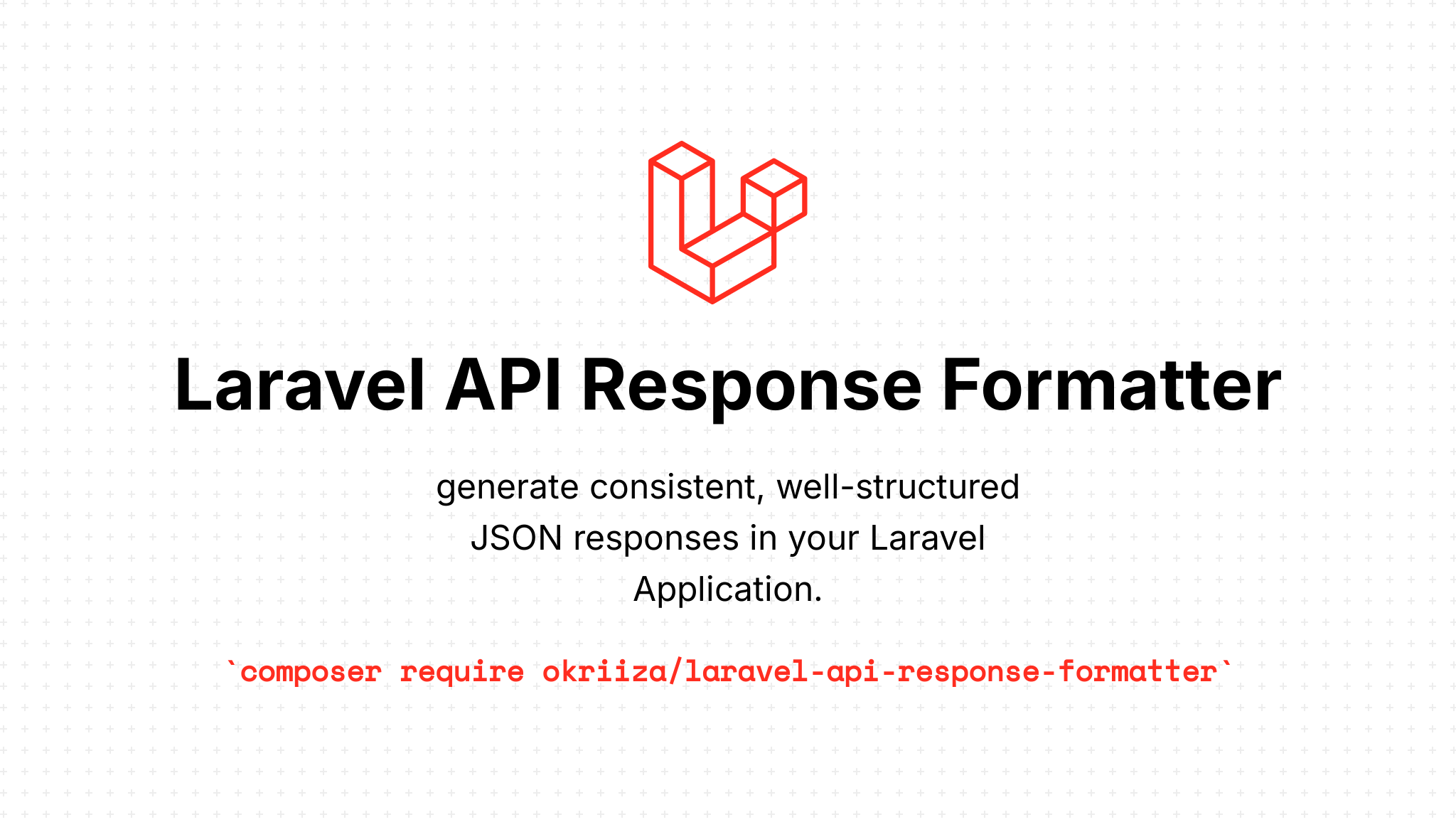Laravel API Response Formatter is a class that provides methods for formatting API responses in a standardized format. It simplifies the process of creating consistent and well-structured JSON responses in your API.
- PHP
^7.4 | ^8.0 - Laravel 6, 7, 8, 9 or 10
You can install the package via composer:
composer require okriiza/laravel-api-response-formatterThe package will automatically register itself.
The Laravel API Response Formatter class provides the following functions:
| Function | Description |
|---|---|
success() |
Formats a success response with optional data, message, status, and HTTP code. |
created() |
Formats a created response with optional data, message, status, and HTTP code. |
noContent() |
Formats a no content response with optional data, message, status, and HTTP code. |
error() |
Formats an error response with optional data, message, status, and HTTP code. |
unAuthenticated() |
Formats an unauthenticated response with optional data, message, status, and HTTP code. |
forbidden() |
Formats a forbidden response with optional data, message, status, and HTTP code. |
notFound() |
Formats a not found response with optional data, message, status, and HTTP code. |
methodNotAllowed() |
Formats a method not allowed response with optional data, message, status, and HTTP code. |
failedValidation() |
Formats a failed validation response with optional data, message, status, and HTTP code. |
The functions in the Laravel API Response Formatter class accept the following parameters:
$data(optional): The data to be included in the response. It can be of any type.$message(optional): The message to be included in the response. If not provided, a default message will be used.$status(optional): The success status of the response. Defaults totruefor success responses andfalsefor error responses.$httpCode(optional): The HTTP response code to be returned. It defaults to the corresponding HTTP status code for each response type.
Here's an example of how you can use the Laravel API Response Formatter class in a user controller:
<?php
use Okriiza\ApiResponseFormatter\ApiResponse;
class UserController extends Controller
{
public function show($id): JsonResponse
{
$user = User::find($id);
if ($user) {
return ApiResponse::success($user);
} else {
return ApiResponse::notFound(null, 'User not found');
}
}
public function create(Request $request): JsonResponse
{
// Validation logic
if ($validationFails) {
return ApiResponse::failedValidation($validationErrors);
}
$user = User::create($request->all());
return ApiResponse::created($user);
}
}In the above example, the show() method fetches a user by ID and returns a success response if the user exists. If the user is not found, it returns a not found response. The create() method performs validation and creates a new user. If the validation fails, it returns a failed validation response. Otherwise, it returns a created response with the created user.
{
"meta": {
"code": 200,
"success": true,
"message": "OK"
},
"result": {
"id": 1,
"name": "John Doe",
"email": "john@example.com"
}
}And for an error case:
{
"meta": {
"code": 404,
"success": false,
"message": "User not found"
},
"result": null
}The meta object contains information about the response, such as the response code, status, and message. The result object holds the actual response data.
Note: The examples provided are simplified and may require modifications to fit your specific use case
Please see CONTRIBUTING for details.
If you discover any security related issues, please email okriizaa@gmail.com instead of using the issue tracker.
This package was created by Rendi Okriza
The Laravel API Response Formatter package is open-sourced software licensed under the MIT license.



